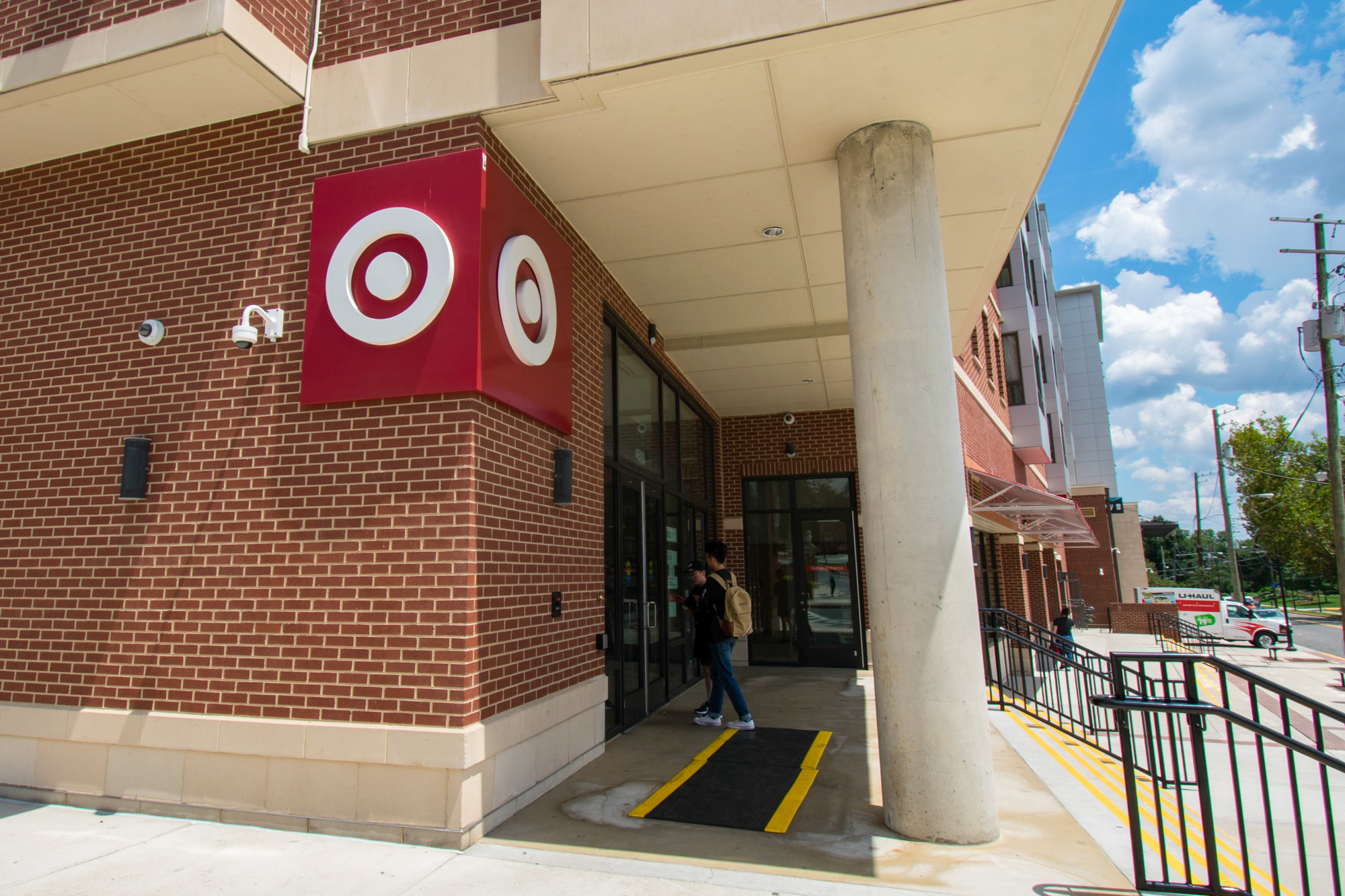When Max Rosen visited Target on Route 1 in his first semester at the University of Maryland, he couldn’t help but wonder what the store did with the perishable goods that could no longer be sold.
“What do you do with fresh food at the end of each day?” Rosen, a senior criminal justice major, asked Target’s store director at the time.
As a result, Rosen began a roughly two-year partnership between the store and the UMD Campus Pantry where, about once a week, pantry workers pick up food and other unsellable items from Target and offer them to this university’s community.
However, this partnership is expected to end later this month as Target is set to close May 13.
Target store director John C. Phillips, who did not know about the campus pantry until Rosen mentioned it, reflected upon the store’s two-year partnership with the pantry and how most of the store’s guests are students.
“I just love that we are not wasting anything and people that are really in need are able to use it and feed themselves and their families,” Phillips said.
[More than 1000 voters turn out for College Park mayoral special election]
Rosen started a similar partnership in high school between his school’s cafeteria and the township’s food pantry in Illinois.
“I came here and I said ‘why not do the same thing and give back to my community and help meet a need with the many food insecure faculty and students who are on our campus,’” Rosen said.
The goods donated to the pantry ranged from fruits and vegetables to baked goods and even included non-food items the store couldn’t sell. The campus pantry offers resources for students, staff and faculty experiencing food insecurity, including food and culinary education.
On average, the pantry received 150 pounds of food each week from Target, according to Larry Tumlin, a Green Dining chef and manager at this university.
Madison Catron, a student staff member at the pantry and a junior environmental science and policy major, added that the items from Target were more unique compared to the pantry’s other donations. They included fruit snacks, frozen waffles, ice cream and more.
“That [Target] was one of the places that constantly brought in … food that really flew off the shelves as soon as it came in,” Tumlin said. “I really appreciate them partnering with us and helping us out.”
[UMD Counseling Center to begin renovations, create space for new program]
According to a 2019 University Counseling Center study, about 20 percent of students at this university experience food insecurity.
While Target provides most of the pantry’s unique donations, the pantry also relies on orders from the Capital Area Food Bank and other donations, such as food drives from student organizations.
The pantry is working on outreach to find other stores to partner with, such as Trader Joe’s, Tumlin added.
As Target closes up shop, Phillips said there will be a final massive donation to the pantry, estimated to be worth approximately $5,000.
“They have helped us to really have a true conscious identity as a business where we know that we live in a community with other people, and we have to respect that,” Phillips said.



